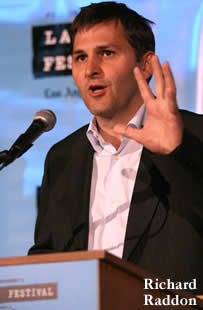 Richard Raddon is currently in his ninth year as Festival Director at the Los Angeles Film Festival. Before joining the festival, Mr. Raddon worked as an independent producer. His credits include: A Slipping Down Life, starring Guy Pearce, Lily Taylor, and Bruno Kirby, which premiered in competition at the 1999 Sundance Film Festival and was released by Lions Gate Entertainment in May 2004; Shooting Lily, which garnered the grand prize at the 1997 South by Southwest Film Festival; …And God Spoke which was released theatrically by Live Entertainment; and Flow, an organ donation educational film for the Jamie Redford Institute. Other producing credits include the 1995 foreign film The Woman in the Moon, starring Maria De Madieros, Brooke Smith, and Portia De Rossi; music videos for the Sony Work Group; as well as numerous short films.
Richard Raddon is currently in his ninth year as Festival Director at the Los Angeles Film Festival. Before joining the festival, Mr. Raddon worked as an independent producer. His credits include: A Slipping Down Life, starring Guy Pearce, Lily Taylor, and Bruno Kirby, which premiered in competition at the 1999 Sundance Film Festival and was released by Lions Gate Entertainment in May 2004; Shooting Lily, which garnered the grand prize at the 1997 South by Southwest Film Festival; …And God Spoke which was released theatrically by Live Entertainment; and Flow, an organ donation educational film for the Jamie Redford Institute. Other producing credits include the 1995 foreign film The Woman in the Moon, starring Maria De Madieros, Brooke Smith, and Portia De Rossi; music videos for the Sony Work Group; as well as numerous short films.
Rachel Rosen is the Director of Programming for Film Independent and the Los Angeles Film Festival. Previously, Rosen was Associate Director of Programming for the San Francisco International Film Festival where she was a programmer for seven years. She has worked in various capacities for the New York Film Festival, New YorkÕs Film Forum and Tri-Star Pictures. A graduate of Stanford UniversityÕs Master of Arts program in Documentary Film, Ms. Rosen directed Serious Weather, a short documentary that was shown at the Vancouver and San Francisco International Film Festivals, and the British Short Film Festival. She is an occasional contributor on the subject of documentary film to Film Comment magazine.
International Film Festival where she was a programmer for seven years. She has worked in various capacities for the New York Film Festival, New YorkÕs Film Forum and Tri-Star Pictures. A graduate of Stanford UniversityÕs Master of Arts program in Documentary Film, Ms. Rosen directed Serious Weather, a short documentary that was shown at the Vancouver and San Francisco International Film Festivals, and the British Short Film Festival. She is an occasional contributor on the subject of documentary film to Film Comment magazine.
Bijan Tehrani: You mentioned that you have seen a growth in the number of people attending the festival.
Richard Raddon: We have. When we first started out, in the very early years of the festival, we had about nineteen thousand attendees. This year we expect to have close to one hundred thousand attendees. We have realized that we can make the screenings within the festival as much as possible an event that people look forward to, and differentiate the experience in terms of a movie going experience. For instance, instead of just screening the film, we would have the filmmakers speak to the audience afterwards for a Q&A. We can really give the festival an atmosphere in Westwood village so that it’s a unique experience. We found that the audiences respond and mark their calendars, and set their schedules around attending a few of the films at the festival. That’s really what has driven the growth of the LA film festival. For years we have been screening international films. But every year as we make the festival more of an inviting and accessible environment to the general public, we promote these unique films and find that audiences respond and our attendance increases.
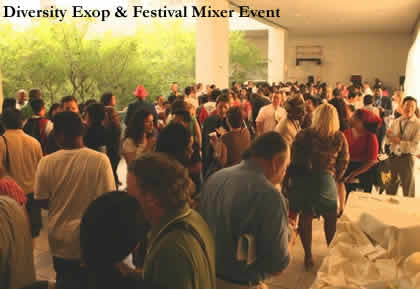 BT: That’s true. It seems that every year there is a new step taken in that direction to make it a festivity, so that people come to celebrate cinema.
BT: That’s true. It seems that every year there is a new step taken in that direction to make it a festivity, so that people come to celebrate cinema.
Richard Raddon: Exactly. There is a reason that we hold the film festival during the summer. It is an unusual time to hold a film festival. The most important film festivals in the world are during awards season – the fall and early spring. And when the festivals are during that time they have a very serious bent to them, in terms of the content that they have at the festival. What we try to do by holding the festival during the summer, we try to bring the best of the international cinema, and the best of the American indies and documentaries, but also package those films with big events, fun movies, popcorn films, and midnight screenings. The idea being that when you come to the film festival, not only will you see great movies, but you will also have a really fun time and a unique experience. It’s not going to be a traditional film festival, like going to a fall film festival where it is cold out. It’s fun, casual, accessible, and it’s enjoyable.
BT: That’s a great idea for this festival. It works well with the young audiences that you have in LA, who will be influenced by the festival to learn about international cinema.
Richard Raddon: Well, we added something new this year. My concern three years ago when we moved the festival to Westwood village was that the young, twenty something audience would not travel over to Westwood village. It hasn’t traditionally been a spot where those audiences go to eat or to hang out. This year we instituted a program of bringing DJ’s from the East side, we call it Festival After Dark. The idea is to attract that young audience that can come out to the festival and take a chance on a film, and then maybe be introduced to a whole new world of movies that they have never been exposed to before. We are always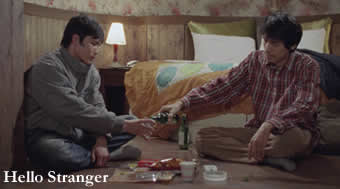 trying to keep it fresh and hip so we can attract a young audience that might not have known that much about independent or foreign cinema.
trying to keep it fresh and hip so we can attract a young audience that might not have known that much about independent or foreign cinema.
BT: I think everyone wants to be serious about film festivals, and shy away from entertaining people, but I think entertaining people is so important if you want to have new crowds.
Richard Raddon: Exactly. Ultimately, because so many people in this town work in the film industry, I don’t think most people in this town are looking for another serious work related event to go to. But what they are always searching for is fun, unique, and interesting experiences. In order to continue to keep people excited who are exposed to film festivals year round, we feel that we need to do things just a little bit differently, and embrace the fun, sexy, casual vibe of Los Angeles. If somebody described the LA Film Festival as being, ‘very LA’, I would take that in the good sense of the word, and embrace that. LA is fun and casual and immediate, and definitely creative, so we want people to have that interesting, creative, and exciting experience when they attend the festival.
BT: Compared to the film festivals in New York, where everything happens inside theaters and is many times limited to having intellectuals at the festivals. I think that is another goal of this festival, getting ordinary people used to seeing different kinds of films.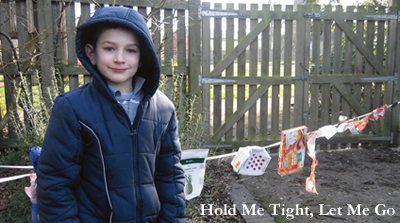 Richard Raddon: Right. And to do it in a way where everyone feels invited. The one thing I would say about Los Angeles is that for many people it feels like a very exclusionary place. We are trying to reinvent that characteristic for film festivals by telling people that this is for everyone, and you can make it your own by participating in all that we have to offer. I have really come to love the summertime aspect of the festival. I love the fact that we can take things that are normally inside and bring them to the outdoors. The festival has outdoor screenings, poolside chats, and outdoor conversations, free outdoor screenings for the general public. As much as we can bring things out into the open air I think it really makes it different from the average event you might attend in other cities year round.
Richard Raddon: Right. And to do it in a way where everyone feels invited. The one thing I would say about Los Angeles is that for many people it feels like a very exclusionary place. We are trying to reinvent that characteristic for film festivals by telling people that this is for everyone, and you can make it your own by participating in all that we have to offer. I have really come to love the summertime aspect of the festival. I love the fact that we can take things that are normally inside and bring them to the outdoors. The festival has outdoor screenings, poolside chats, and outdoor conversations, free outdoor screenings for the general public. As much as we can bring things out into the open air I think it really makes it different from the average event you might attend in other cities year round.
BT: Quite true. You are also very close to one of the greatest universities in our country, UCLA. Do UCLA students attend the festival?
Richard Raddon: They do, a bit. But when we first moved the festival to Westwood Village we worked very closely with the community groups, and they asked us to move our festival back a week so that we wouldn’t conflict with the commencement ceremony. Our festival had usually begun over Father’s Day weekend, which is when UCLA typically has its commencement. The festival right now falls in between quarters, the spring and summer, so it is a time when a lot of students are returning to their homes. School is not in session. There is a real opportunity for students to stick around, and we have had a pretty healthy student attendance at the festival, but we don’t have the 80,000 kids up on that campus. It makes navigating Westwood Village a bit less hectic and saner, in terms of the traffic and parking.
BT: Is there anything absolutely new for 2008?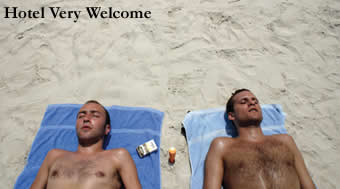
Richard Raddon: The programming for the general public is basically the same. We are really just trying to fine-tune the festival’s experience. We are really excited about the films that we have in the festival this year, and we think it is one of the strongest years we have ever had. What I would say is new is that we are really introducing a market component to the festival for the filmmakers. We are taking filmmakers that we cultivate year round to Film Independent—the organization that produces the festival—and we are bringing them into the festival and having meetings between them and film executives and trying to help them get their projects made or distributed. We are really working hard on that aspect, of creating more business for the filmmakers and trying to help them along in their careers. That is not something that is open to the general public. We are excited about it because we think it will have an impact on the filmmakers and the business executives that attend the festival.
BT: How many films do you have in the international section of the festival?
Richard Raddon: There are 21 films in the international showcase section. But we have international films spread throughout the rest of the programs. We have not expanded the number of films all that much over previous years, because part of the experience that we want to deliver to the attendee is that we want to screen good films for them. By 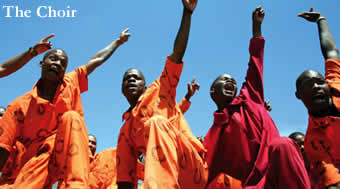 increasing the number of films that you select, by nature, you can possibly water down the quality of the screenings. We don’t want to do that. We’ve intentionally tried to stay focused and limit the number of films we screen at the festival. Even though our audience is growing, it means that the theaters are more packed and getting sold out. But it also means that you’re chances of having a really good experience is really high. Rachel Rosen, the director of programming, and our team, really scrutinizes over these films and makes the best selections for the festival.
increasing the number of films that you select, by nature, you can possibly water down the quality of the screenings. We don’t want to do that. We’ve intentionally tried to stay focused and limit the number of films we screen at the festival. Even though our audience is growing, it means that the theaters are more packed and getting sold out. But it also means that you’re chances of having a really good experience is really high. Rachel Rosen, the director of programming, and our team, really scrutinizes over these films and makes the best selections for the festival.
BT: Is there anything that you would like to add?
Richard Raddon: We love to see people out at the festival. Part of the reason that we put on the festival is that the audiences have been growing in a dramatic fashion at the LA Film Festival, and we hope to continue to see people come out and support us. We hope that the readers will come out and continue to view films at the festival, and be involved in the discussions afterwards. We think it is going to be a great year for movies and audiences.
BT: Are there any international films that we should be looking for at this year’s festival?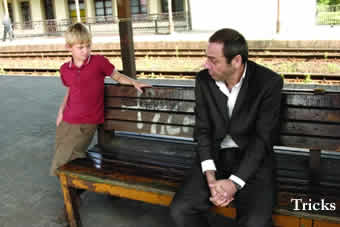
Rachel Rosen: It’s hard for a programmer to single out any. Well, I can talk about the films where we know the directors will be at the festival. There are a lot of those as well. I think we have more international guests this year than we have ever had before. This is really exciting, because we have always had a pretty great attendance from the American filmmakers at the festival, and it has taken a little longer for international filmmakers to learn about the reputation of the festival. The director of “The Amazing Truth About Queen Raquela” will be here, directed by Olaf de Fleur Johannesson, from Iceland. Michael Davie, the director of “The Choir” will be here—a South African documentary. Tang Ho Chung, the director of “Exodus” is going to be here. I believe we are going to have one of the animators for the omnibus film, “Fears of the Dark”. Nahid Persson, the director of “Four Wives – One Man”, will be here. Guenter Schwaiger, the director of “Hafner’s Paradise”, will be here. The director of “Hello, Stranger” is going to be here. Andrei Jacamowsky, the director of “Tricks”, will be here. Nicolas Pereda, the director of “Where Are their Stories”, will be here. I think that is it.
BT: How can the audience members meet these directors, or listen to them speak?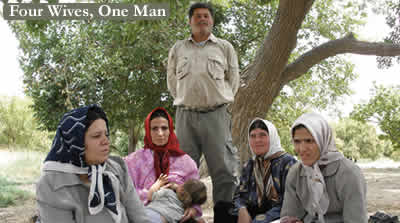 Rachel Rosen: When the director is here they will be appearing at the screenings of their films. They will be introducing their films and doing a Q&A with the audience after the film. So the best way to meet the directors is to go to the screening. The directors really look forward to interacting with the audiences. Usually they will stay around after the formal Q&A and answer questions.
Rachel Rosen: When the director is here they will be appearing at the screenings of their films. They will be introducing their films and doing a Q&A with the audience after the film. So the best way to meet the directors is to go to the screening. The directors really look forward to interacting with the audiences. Usually they will stay around after the formal Q&A and answer questions.
BT: What Independent filmmakers will be attending the festival?
Rachel Rosen: Wow, so many. From the narrative and documentary competitions, every single film will have a director in person. There is one documentary, “Paper or Plastic”, which is co-directed by two people, and one of them is about to give birth, so she is the only person who might not make it here. We will also have a lot of American filmmakers here from our summer previews series. Neil Abramson will be here with “American Son”. Jeff Stimmel, the director of “The Art of Failure”, the Chuck Connelly documentary, will be here. Jay Duplass, who directed “Baghead”, will be here. Lance Hammer, the director of “Ballast”, will be here. Clark Greg will be here for at least of the screenings of “Choke”. Courtney Hunt will be here for “Frozen River”; James Marsh will be attending for “Man on a Wire”. Azazel Jacobs will be here for “Momma’s Man”. Margaret Brown will be here for the “The Order of Myths”, and Jonathan Levin will be here for “The Wackness”. And then for our Ford Amphitheater screenings, Dana Brown, the director of “Highwater”, will be here for his Ford Screening. There will be special guests at a bunch of other screenings as well. We are hoping to have some cast at the screening for “Lost Boys”. It just goes on and on. We also have special evenings, like our evening with Rob Reiner, and evening with Lawrence and Marc Kasdan, and a conversation with Dianne English, who is writing and directing a remark of “The Women”, following a screening of the original “The Woman” from 1939.
some cast at the screening for “Lost Boys”. It just goes on and on. We also have special evenings, like our evening with Rob Reiner, and evening with Lawrence and Marc Kasdan, and a conversation with Dianne English, who is writing and directing a remark of “The Women”, following a screening of the original “The Woman” from 1939.
BT: What about the theaters? Are they all in Westwood Village?
Rachel Rosen: The majority of them are all in walking distance in Westwood village—those are our main theaters. We are also using the Landmark Theater, which is a little further away down on Westwood and Pico. We also have five nights at the Ford Amphitheater in Hollywood, and one big screening for free in the California Plaza, that we do in collaboration with Grand Performances.
BT: What is the best way to purchase tickets?
Rachel Rosen: The easiest way is to go to the website, lafilmfest.com or to the Festival Ticket Office located at 1020 Westwood Boulevard. You can also buy 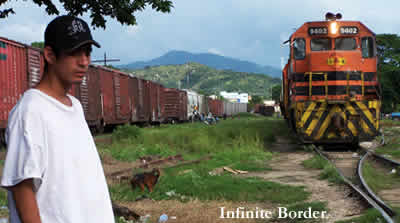 them on the phone, the number is 1-866-FILMFEST. Another thing, because we want to be a celebration of film, there are a number of free screenings that don’t require a ticket purchase. There are two free screenings in Westwood village, one of “Bye Bye Birdie”, and one of “Planet of the Apes”.
them on the phone, the number is 1-866-FILMFEST. Another thing, because we want to be a celebration of film, there are a number of free screenings that don’t require a ticket purchase. There are two free screenings in Westwood village, one of “Bye Bye Birdie”, and one of “Planet of the Apes”.
BT: How to you expect the attendance to be for the international films? Do you expect growth there?
Rachel Rosen: Yes we do. Since we have been partnering with the Los Angeles Times our attendance has really grown. It has allowed us to reach audiences that might not have known about the festival. The first year we moved to Westwood and partnered with the LA Times our attendance rose thirty-three percent. We also have the fortune of partnering with a lot of other organizations in town that help us reach the audience for the international films. I would say attendance for those have been growing over the past two years. Some of them we probably would have put in smaller theaters two years ago, but some of them are in slightly larger theaters this year in anticipation of that larger attendance this year.

